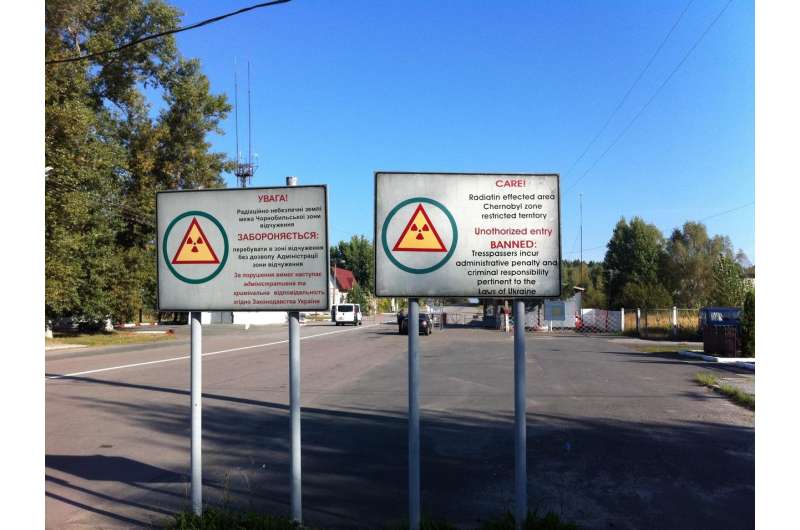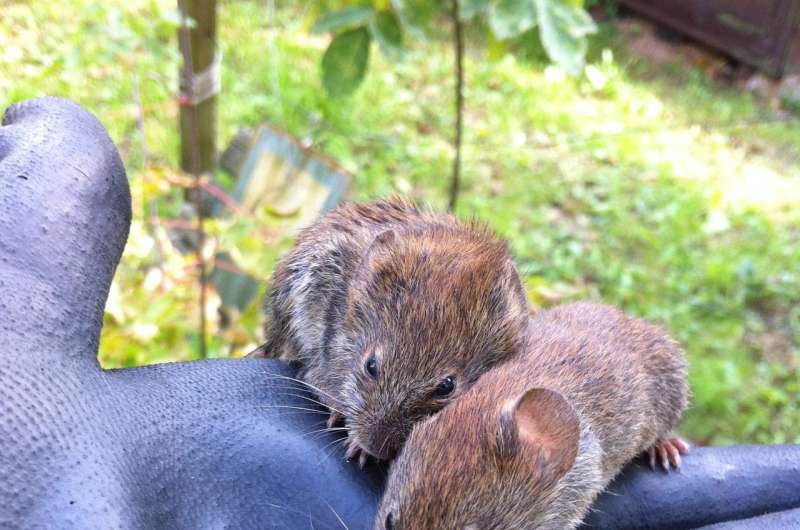Chernobyl exposure alters the gut bacteria of wild animals

Researchers at the Universities of Oulu and Jyväskylä, together with their collaborators in the U.S. and France, have shown that wild animals living in areas contaminated by radioactive material have a different community of bacteria within their digestive system (the gut microbiome) compared with animals that do not live in areas affected by an increase in radiation.
While quite a lot is known about how diet and lifestyle can alter the types of gut bacteria in humans, relatively little is known about the factors that can affect the gut bacteria of wild animals. More than 30 years ago, the nuclear accident at Chernobyl, Ukraine, released large amounts of radionuclides into the environment. While humans have limited access to the area surrounding the former Chernobyl nuclear power plant, wildlife in this area is exposed to radioactive material that persists in the soil and food. Exposure to this radioactive material has wide-ranging biological impacts in many organisms, such as increased frequency of cataracts in bank voles.
Anton Lavrinienko and co-workers collected droppings from small rodents (the bank vole Myodes glareolus) living in areas surrounding the former Chernobyl nuclear power plant and from areas unaffected by radioactive fallout. Next, they obtained millions of sequences of DNA to identify and count the types of bacteria that were living within the guts of these bank voles. Bank vole guts contain hundreds of different species of bacteria. However, the abundance of two general categories of gut bacteria (the Firmicutes and the Bacteroidetes phyla) is altered in voles exposed to radioactive material, with fewer Bacteroidetes and more Firmicutes in animals caught from the contaminated places.
This research raises several questions. For example, are the changes in the types of gut bacteria a consequence of radiation exposure or because areas affected by radioactive material have different environments? Could the increase in Firmicutes improve the health of bank voles living in a radioactive environment, or is the altered microbiome an indicator of poor wildlife health? More research is required to know whether the wildlife affected by Chernobyl fallout could benefit from probiotic supplements.

More information: Anton Lavrinienko et al. Environmental radiation alters the gut microbiome of the bank vole Myodes glareolus, The ISME Journal (2018). DOI: 10.1038/s41396-018-0214-x
Journal information: ISME Journal
Provided by University of Jyväskylä

















